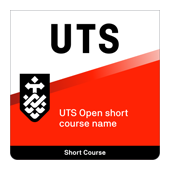Our green belt course is stage one in the pathway to certification as a black belt facilitator. Should you wish to progress to black belt certification, successful completion of both the green belt qualification and green belt certification is required.
The following content will be covered during the course:
Introductory concepts
- Introduction to Lean Six Sigma Green Belt
- What is lean six sigma and green belt?
- Why develop cultures of improvement?
- What is six sigma?
- What is lean?
- Categories of improvement, complexity level of projects, and improvement vs implementation projects
- Framework for improvement in lean six sigma projects
- Pdsa ‘learning’ cycles
- Introduction and assessment of quality tools
- Dmaic and basic tool matrix.
Facilitation and change management skills
- Rationale for the role of green belt improvement facilitators and project managers
- Importance of teamwork and chemistry
- Stages and success factors of team development
- Tools for enabling better teamwork
- Problems faced by teams
- Towards a ‘facilitation model’
- From unilateral control to mutual learning
- Personality and managing team dynamics
- Facilitator and project manager roles
- Communication skills for team facilitation
- Ladder of inference
- Conversation meter
- Five areas of communication skills
- Corkscrew analysis for team feedback
- Assessing the dynamics of people in the process
- Change management in the context of the improvement journey
- Critical conversations
- Tools for team facilitation and working with ideas – brainstorming, affinity diagrams and multi-voting.
Define phase
- Commissioning an improvement project
- Leadership and governance
- Improvement plans - hints, example and template
- Modelling your project
- Measuring financial benefits
- PDSA – learning cycles
- Project management tools
- Critical to quality (ctq)
- Linkage of process (lop) diagram
- SIPOC diagram
- Stakeholder analysis
- Using 'quality companion' during define phase.
Measure phase
- Statistical thinking principle
- Data collection
- Descriptive statistics – principles and tools
- Stability vs capability
- Measuring ‘stability’ – run charts and control charts
- Measuring ‘capability’ – histograms, process sigma, and six sigma calculation
- Measure cycle hints.
Analyse phase
- Statistical thinking principle
- Process analysis
- Process mapping
- Lean thinking and waste analysis
- Value stream mapping
- Verifying root causes
- Cause & effect diagram
- ‘The five whys’
- Pareto chart
- Scatter plot diagrams
- Quality companion and minitab in the analyse phase.
Improve phase
- ‘Develop solutions’ phase
- Change packages
- Logical solution development from root cause analysis
- Lean solutions for rapid improvement
- Solution development tools – six hats thinking, change concepts and ‘do-ability matrix’ for evaluating ideas
- Tools for piloting solutions
– RASCI chart and force field analysis
- Rolling out the solution(s)
- Implementation checklists and tools for implementation
Control phase
- Controlling the process to a new design
- Reaction or control plan.
















